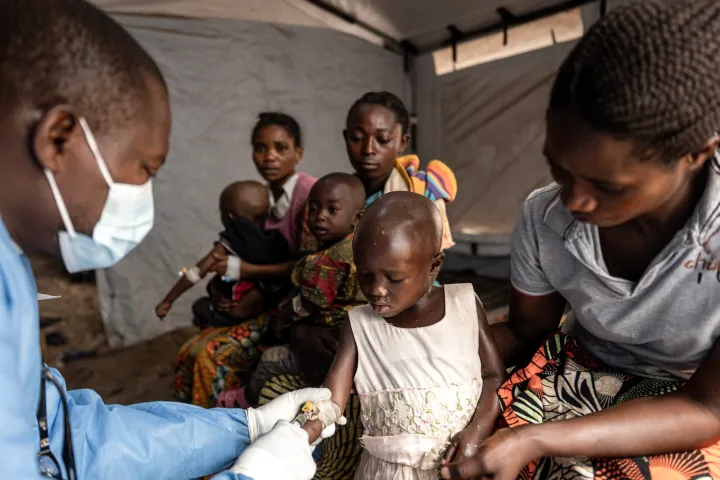The Democratic Republic of Congo is poised to receive its first delivery of mpox vaccine doses on Thursday, with a second shipment expected on Saturday, according to Cris Kacita, the country’s mpox outbreak response chief. This development marks a significant step in addressing the global inequity in vaccine access that left African countries without the shots widely available in Europe and the United States during the 2022 global mpox outbreak.

Congo, identified as the epicenter of an mpox outbreak declared a global public health emergency by the World Health Organization (WHO) last month, has struggled to contain the spread of the disease due to the absence of vaccines. While Kacita did not disclose the number of doses or the supplier, the imminent arrival of these vaccines represents a crucial turning point in the country’s fight against mpox.
The Congolese health authorities now face the daunting task of launching a vaccination campaign across a country the size of western Europe. The vaccine doses require storage at an ultra-cold temperature of -90 degrees Celsius (-130°F), presenting significant logistical challenges. Additionally, health officials must navigate potential skepticism within communities regarding the vaccination effort.
Kacita explained that the distribution of vaccines would not commence immediately upon receipt. “We need to communicate so that the population accepts the vaccination,” he stated, highlighting the importance of public education and engagement in the success of the campaign. The six targeted provinces reportedly have the capacity to store the doses at the required temperature, addressing one critical aspect of the distribution challenge.
Maria Van Kerkhove, the WHO’s acting director of epidemic and pandemic prevention, emphasized that communication is a key focus as the agency supports Congo’s response. “We have to look at the communication around who will get them [the vaccines] first,” she said, warning that disinformation about the vaccines was “pretty rampant.” Initially, vaccinations will prioritize contacts of known cases due to limited dose numbers.

The mpox outbreak in Congo has had severe consequences. As of August 31, the country reported 19,710 suspected mpox cases since the start of the year, with 5,041 confirmed cases and 655 fatalities, according to the health ministry. The disease, which typically causes flu-like symptoms and pus-filled lesions, can be fatal and spreads through close contact, including sexual contact.
Health workers in Congo have expressed concerns about the challenges in rural and remote areas, where support is limited. A doctor involved in the response, speaking anonymously, highlighted the difficulties in confirming suspected cases due to the lack of laboratory facilities in areas without water or electricity. This underscores the broader infrastructural challenges facing the vaccination campaign.
The WHO has called for more resources to support the response in Congo and neighboring Burundi, which has also seen a rise in cases of the new clade Ib strain of mpox in recent weeks. Van Kerkhove stressed that vaccines are only part of the solution, emphasizing the importance of contact tracing and raising awareness about prevention methods.
In addressing the specific risks to children, the WHO recommends using Bavarian Nordic’s shot for pediatric cases in outbreaks when the benefits outweigh the risks, despite the vaccine not being licensed for children. This recommendation is currently under discussion in Congo.
As the country prepares for the vaccine rollout, Congo’s Health Minister Roger Kamba has also focused on preventive measures in schools. In a video message, he emphasized the importance of handwashing and disinfecting furniture to prevent the spread of mpox as children return to classrooms.
The upcoming vaccine deliveries to Congo represent a critical step in the global effort to control the mpox outbreak. However, the success of the vaccination campaign will depend on overcoming significant logistical, communicative, and infrastructural challenges in one of Africa’s largest and most complex countries.
REUTERS



